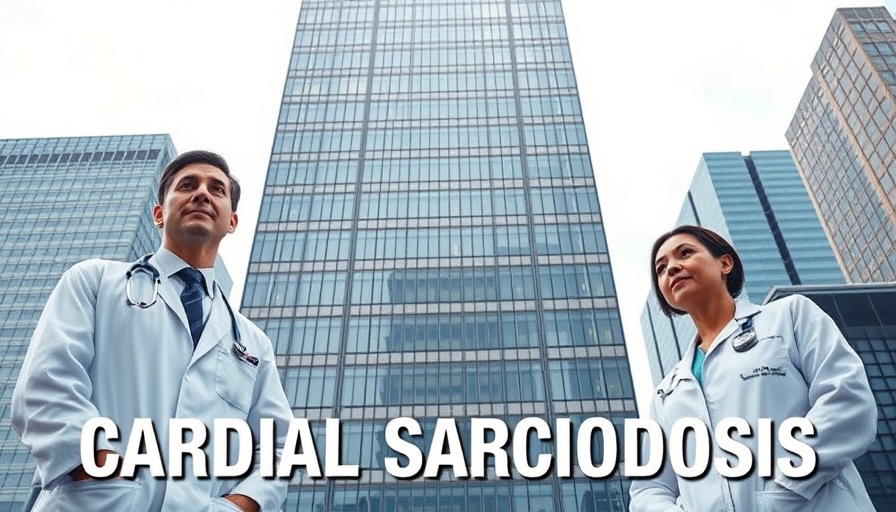
Understanding Cardiac Sarcoidosis: What's New for 2025
With cardiac sarcoidosis on the rise, recent updates from the 2024 American Heart Association (AHA) and European Society of Cardiology (ESC) provide crucial insights into management and diagnosis. This condition, often overlooked, has significant implications for younger patients presenting with unexplained heart problems. Symptoms like complete heart block can signal the need for deeper evaluation beyond standard echocardiograms.
In 'Updates from the 2024 ESC and AHA Scientific Statements on Cardiac Sarcoidosis', the discussion reveals vital information on diagnosis and treatment that inspires a deeper dive into the subject.
Why Awareness of Cardiac Sarcoidosis is Essential
Often affecting individuals in their 40s and 50s, cardiac sarcoidosis can manifest through sudden heart rhythm disturbances. Medical professionals must consider sarcoidosis when encountering atypical cases, particularly in younger patients without conventional risk factors such as coronary artery disease. As noted by Dr. Leslie Cooper, increasing awareness can lead to early intervention and better management.
Diagnostic Criteria and Testing
The updated guidelines emphasize the importance of a multi-faceted approach to diagnosis. Cardiac MRIs and PET scans are pivotal in identifying the presence and extent of sarcoidosis. The definition of probable cardiac sarcoid also accommodates cases where biopsies are not possible, further urging healthcare providers to utilize advanced imaging techniques.
The Role of Team-Based Care
A multidisciplinary approach is vital in managing cardiac sarcoidosis. Involving cardiologists, rheumatologists, and other specialists ensures comprehensive care. This team synergy allows for shared decision-making, especially concerning risk factors for arrhythmias and the necessity for devices like implantable cardioverter-defibrillators (ICDs). It's crucial for healthcare teams to base treatment plans on robust imaging findings and the individual patient's condition.
Innovative Therapies
The AHA and ESC documents underscore the use of immunosuppressive therapy, primarily corticosteroids, for managing inflammatory processes in sarcoidosis. For patients unresponsive to initial treatments, options like methotrexate or biologics can be considered. Understanding the balance between treating the inflammation and monitoring for potential side effects is key to successful management.
Overall, the discussions surrounding cardiac sarcoidosis are evolving. It is more critical than ever for medical professionals to remain vigilant about this condition. Improved detection and treatment strategies can make a real difference in patients' lives.
 Add Row
Add Row  Add
Add 




Write A Comment